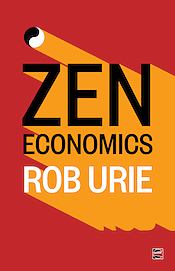When the South Korean military killed hundreds of pro-democracy protesters and laid siege to the southwestern city of Gwangju in May 1980, few people outside the city knew what was happening. Martial law had been declared, the already censored press was completely gagged, and all communications with Gwangju were cut off. The end of the 10-day siege marked the beginning of a seven-year period of military repression and terror under Gen. Chun Doo-hwan, who outdid his predecessor, Gen. Park Chung-hee, in brutality and corruption.
One generation later, millions of Korean citizens took to the streets in dozens of cities across the country for 20 continuous weekends of “candlelight rallies,” from the autumn of 2016 to the spring of 2017. They called for the impeachment of then-President Park Geun-hye, General Park’s daughter, for her part in a scandal involving corruption, bribery and abuse of power. This time around, the entire world knew what was going on in South Korea.
The country’s advanced information technology infrastructure made the difference. Smartphones turned front-line protesters into videographers. Millions commented on the political situation on Kakao Talk (a Korean messaging service), Facebook and other social media channels.
Technology alone is not enough to establish true democracy. Not all technologically advanced nations have vibrant grass-roots political engagement, and in many countries, devices and software are being abused — used for surveillance or to manipulate information, while anti-democratic extremists spread their views on the same platforms.
Advanced technology can enable democracy by giving citizens more time and energy for political engagement and by making corrupt political practices like vote-buying more difficult. However, what’s most important is constant civic engagement — without that, democracy withers away.
The popular “Asian values” thesis suggests that Asians are culturally disinclined to democracy because they favor the good of the community over individual rights. That is untrue: South Koreans have fought for democracy throughout modern history.
In 1945, when the Japanese left after 35 years of colonial rule, no South Korean called for the restoration of the monarchy. In 1960, a mass protest against misrule and electoral fraud ousted the republic’s first president, Rhee Syngman. Throughout General Park’s 18 years of iron-fisted rule, students and workers agitated and risked their lives for democracy. In 1987, 19 days of violent street demonstrations led by students, workers and even young managers ended his successor’s military rule.
With the “candlelight revolution, Koreans have elevated their democracy to another level. But the challenge they face is formidable. The protesters were calling for more than just the ousting of an errant president and her cronies: They want to create a cleaner and fairer society.
The most immediate challenge Koreans face is that of ridding the political system of corruption. Illicit dealings among politicians, high-ranking officials and chaebols — family-controlled business empires — are common. This August, Lee Jae-yong, the de facto head of Samsung, one of the most prominent chaebols, was sentenced to five years in prison for bribing Park and her notorious confidante Choi Soon-sil.
Some believe that corruption can be eliminated by further deregulation, with the idea that this would reduce the number of opportunities for collusion with public officials, and by strengthening minority shareholder rights, on the theory that shareholders will expose corrupt dealings by those who run the chaebols. However, a much more fundamental shift in the distribution of power is required if there is to be a reduction in corruption. Decision-making abilities need to be transferred from the political and business elites to citizens, civic organizations, trade unions and other “countervailing powers,” to borrow an expression from the economist John Kenneth Galbraith.
Then there is the issue of fairness. Increasing deregulation has reduced protections for small factories and shops, which used to supply jobs that kept income inequality relatively low. The spread of American-style salary norms in the past decade or so has led to a tremendous increase in wage inequality — South Korea has one of the fastest-growing levels among the countries in the Organization for Economic Cooperation and Development.
But what angers South Koreans most is the marked drop in social mobility and the sense of hopelessness that haunts young people from less-privileged backgrounds — that is, most young people.
This lack of social mobility is sometimes the result of blatantly corrupt practices. Of all the corruption scandals the former president faces, particularly upsetting for many was the accusation that Ms. Choi influenced Ewha Womans University in Seoul, one of the nation’s leading universities, to accept Ms. Choi’s daughter at the expense of candidates who were better qualified.
The barriers to university applicants are usually subtle. It’s the extras that make a candidate for admission stand out, such as extracurricular activities or expensive private tutoring for university entrance exams. At the beginning of their careers, expectations that candidates have completed internships may stand in the way. Poor parents cannot even dream of helping their children with such things.
Many young Koreans believe, rightly, that equality of opportunity is impossible in the face of ostensibly fair rules that favor the daughters and sons of the rich and the powerful.
Removing these barriers to social mobility will be even more difficult than reducing corruption. Big changes in the education system are needed, and especially in the university application process. This will also require the expansion of the welfare state so that children from less-privileged backgrounds can have a chance at moving up the social ladder through early learning programs, publicly funded enrichment schemes, and the increased parental attention and family stability that extra income can provide.
Koreans have shown the world that an engaged citizenry, armed with the latest technologies, can work a democratic miracle. That miracle will fade away and people will become disillusioned with democracy if the government does not deliver a cleaner and fairer society soon.
This column originally appeared in the New York Times.










